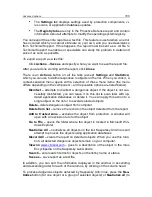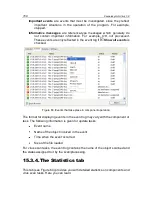
176
Kaspersky Anti-Virus 7.0
When any of its components starts, Kaspersky Anti-Virus opens port 1110 as a
listening port for all incoming connections. If that port is busy at the time, it se-
lects 1111, 1112, etc. as a listening port.
If you use Kaspersky Anti-Virus and anot
her company‟s firewall simultaneously,
you must configure that firewall to allow the
avp.exe
process (the internal Kas-
persky Anti-Virus process) access to all the ports listed above.
For example, say your firewall contains a rule for
iexplorer.exe
that allows that
process to establish connections on port 80.
However, when Kaspersky Anti-Virus intercepts the connection query initiated by
iexplorer.exe
on port 80, it transfers it to
avp.exe
, which in turn attempts to estab-
lish a connection with the web page independently. If there is no allow rule for
avp.exe
, the firewall will block that query. The user will then be unable to access
the webpage.
15.6.
Scanning Secure Connections
Connecting using SSL protocol protects data exchange through the Internet. SSL
protocol can identify the parties exchanging data using electronic certificates,
encrypt the data being transferred, and ensure their integrity in transit.
These features of the protocol are used by hackers to spread malicious pro-
grams, since most antivirus programs do not scan SSL traffic.
Kaspersky Anti-Virus offers the option of scanning SSL traffic for viruses. When
an attempt is made to connect securely to a web resource, a notification will ap-
pear on screen (see Figure 68) prompting the user for action.
The notification contains information on the program initiating the secure connec-
tion, along with the remote address and port. Select one of the options below to
continue or discontinue scanning:
Process
– scan traffic for viruses when connecting securely to the web-
site.
Skip
– stay connected to a web resource without scanning traffic for vi-
ruses.
Check
Apply to all
to apply the selected action to all subsequent attempts to
establish SSL-connections in the current browser session.






























